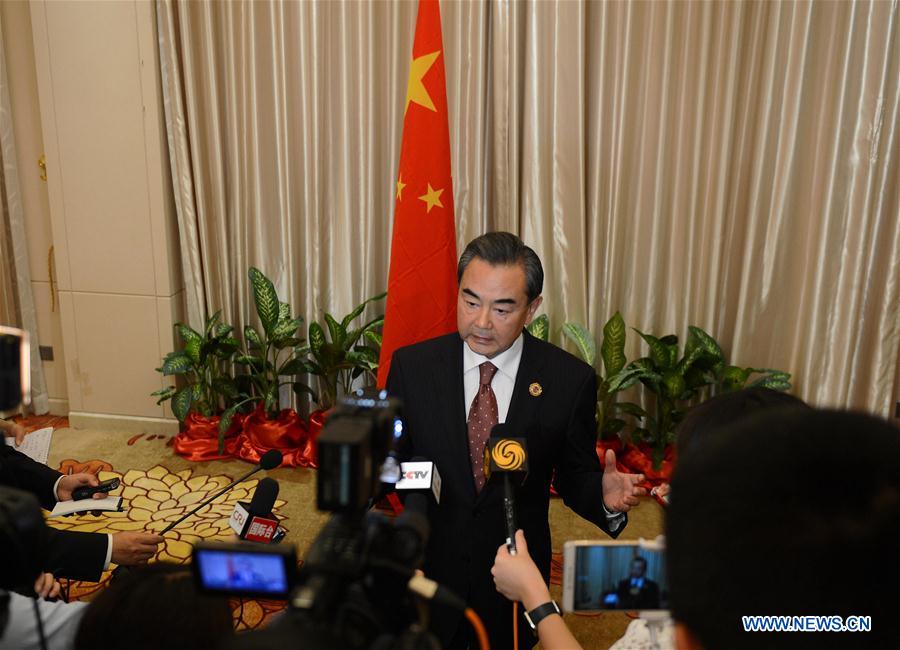VIENTIANE, July 27 (Xinhua) -- Chinese Foreign Minister Wang Yi on Tuesday called on regional nations to enhance dialogue on bilateral and regional issues and explore precautionary diplomatic models.

VIENTIANE, July 26, 2016 (Xinhua) -- Chinese Foreign Minister Wang Yi(C) speaks to the press after the meetings in Vientiane, capital of Laos, on July 26, 2016. Chinese Foreign Minister Wang Yi said here on Tuesday that China and members of the Association of Southeast Asian Nations (ASEAN) have exerted joint efforts to make the ministerial meetings focus on dialogue and cooperation. (Xinhua/Liu Ailun)
After meetings in the Lao capital, Wang said China and members of the Association of Southeast Asian Nations (ASEAN) have exerted joint efforts to make the ministerial meetings focus on dialogue and cooperation, and most of the foreign ministers came to Vientiane with desire for cooperation.
China-ASEAN cooperation is an important platform for China to take part in regional cooperation, Wang said. This year marks the 25th anniversary of China-ASEAN dialogue relationship. The next 25 years will be a period of maturity for the bilateral ties.
"China and the ASEAN nations have agreed to build a closer community of common destiny," said Wang, adding that they have set six priority areas for the further development of China-ASEAN ties.
China and the 10 ASEAN members agreed to jointly strive to boost cultural and people-to-people exchanges as the third pillar for their cooperation besides the political-security dialogue and trade and economic ties.
Meanwhile, China supports the development of the ASEAN Regional Forum (ARF) with practical actions, calling on the ARF to further promote regional dialogue and cooperation, he said.
At the 23rd ARF, Wang said China always attaches great importance to the role of the ARF and actively participates in the dialogue and cooperation in the ARF framework.
China believes that the ARF should adopt the principle of building trust throughout its whole process and explore precautionary diplomatic models step by step based on consensus, Wang said.
With a generally stable situation, the Asia-Pacific region has gained more important role in the global situation, Wang said. However, the region also faces terrorism, natural disasters, transnational crimes and other forms of nontraditional security threats.
All parties of the ARF should further enhance dialogue and cooperation so as to increase mutual understanding and trust among countries in the region, he said.
China is willing to promote the ARF to make more contributions to regional peace and stability through more dialogue and cooperation with all parties, Wang said.
On the South China Sea issue, China and the ASEAN nations have reached an important consensus that they agreed to return to the right track of solving their disputes through dialogue and consultation, Wang noted.
ASEAN foreign ministers have made it clear that ASEAN as a whole will not take a position on the so-called arbitration case, which they believe is a bilateral issue between China and the Philippines, Wang said.
He also mentioned that China and the ASEAN nations issued a joint statement on full and effective implementation of the Declaration on the Conduct of Parties in the South China Sea, which stipulates that disputes should be resolved peacefully through negotiation between the parties directly concerned, and China and ASEAN countries should work together to maintain peace and stability in the South China Sea.















